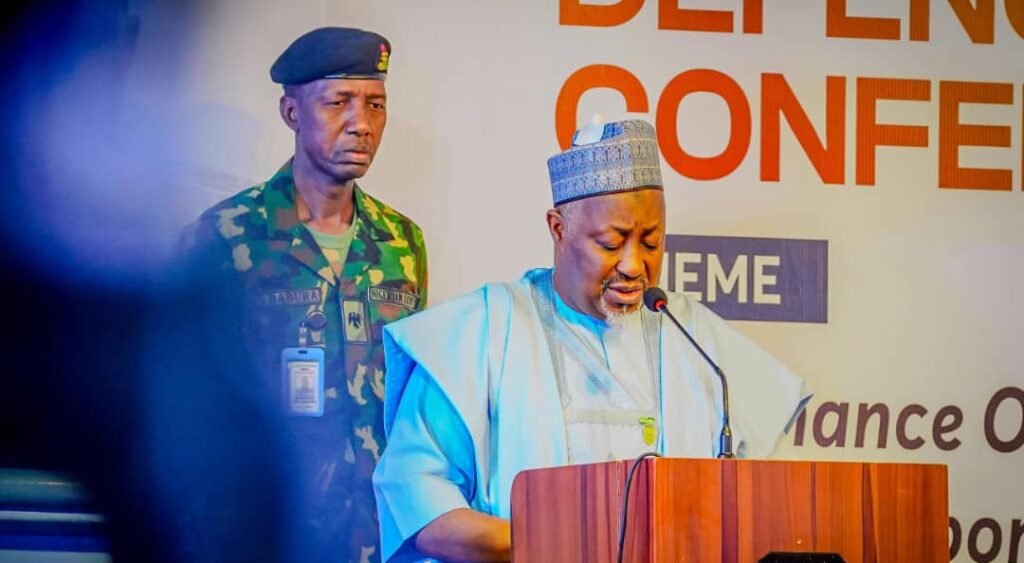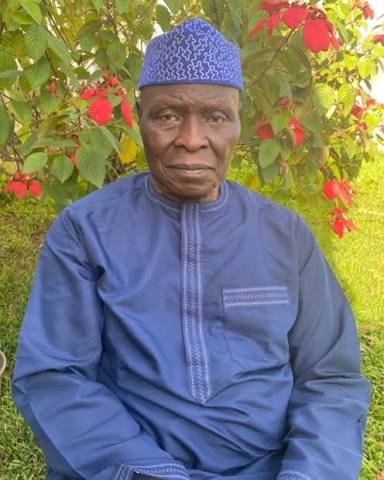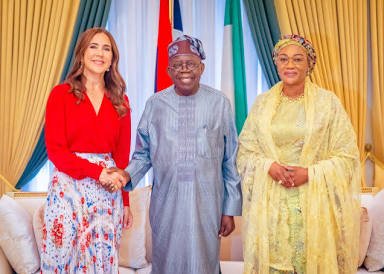Kemi Badenoch: Some thoughts and a prayer, By Matthew Hassan Kukah.
I was quite ecstatic about Kemi Badenoch’s miraculous slaying of the Goliath of the British establishment and emerging as the head of the Conservative Party and is now leader of the Opposition. I felt disappointed by the rather lukewarm reception of this great news especially in Nigeria and Africa. I drafted this opinion piece and I decided to seek the opinion of my good friend, Dipo Salimomu who has lived in England and understands the issues. I felt his criticisms would be useful. Nothing prepared me for the response I got from him. After reading the draft, he called to say he did not have much to add but could I take a look at a short video he had just sent to my Whatsapp page? I opened and played the video and could not believe my eyes. There, right before me was a young lady, Kemi Adegoke with whom I had shared a Tedex-Euston platform in 2017. Pat Utomi had been at the same event too. I had been struck by her eloquence and clarity of thought but that was it. At that event, at only 30 years old, she had spoken about her journey into politics barely 15 years after returning to the UK at the age of 16. She spoke of her experience with white British teachers who had discouraged her from contemplating going to Oxford because she would be boxing well above her weight. She said that when she informed a white female Member of the Labour Party of her plan to join the Conservative Party, the lady had considered it a sign of ingratitude and a lack of appreciation of what the Labour Party had done for people of her kind. In the end, she said, she had joined the Conservative Party because, its ideology aligned with her personal beliefs. Barely seven years later, Kemi now sits at the highest pedestal of a Party she joined barely ten years ago. This is a feat that is moment defining and will remain a major marker in the future of British politics. Truth be told, at the beginning, when I heard that one Kemi Badenoch, a British woman of Nigerian descent had thrown her headgear into the ring to contest for the position of Leader of the Conservative Party in July this year, I must confess that I sneered. ‘What kind of gra-gra is this’, I said to myself. I imagine that millions of people of African descent living in the United Kingdom and beyond felt the same. I was convinced that perhaps she simply wanted her name on the list for history. I recalled the story of the tortoise who was to be carried away on exile. As he was lifted up by, he had pleaded to be put down for just a few minutes. ‘I am not quarreling with my exile’, he said, ‘but just put me down, please’. When his captors reluctantly did, he scratched the ground with his paws and turned, saying, ‘Ok, I am ready for the exile. You can carry me’. Asked why he had wasted their time, he replied: ‘I want my descendants to know that their forefather did not go on exile without a fight’. How Kemi pulled this great feat off, definitely requires far more attention than we are prepared to concede to her. On personal reflection, I scratched my head, pause and reflected: Kemi was born a year after I arrived the University of Bradford for a post graduate degree. The landscape of British public life from where I stood, was almost totally denuded of black presence in either academia, economics or politics. Bradford itself then was a sleepy environment with a very high Asian population running corner shops. There were hardly any black heroes or heroines not to talk of British citizens of Nigerian descent. In Long Tennis, Mr. David Imonite had made a brief appearance in Wimbledon in 1979. I had begun to support Nottingham Forest Football Club because of Viv Anderson, the first black person I saw playing football at that level. Later, John Barnes followed, with Liverpool later. Then came the greatest decathlete of all time, Daley Thompson, followed by the sprinter, Linford Christie, the heavy weight boxer, Frank Bruno and Lennox Lewis along with others. Sports and to some extent music (Sade Adu) would remain the main theatre of action for many British citizens of colour. The walls of British politics, hitherto seeming impregnable, cracked open slightly when the 1987 elections saw Diane Abbot, Paul Boateng and Bernie Grant emerge as Members of Parliament under the flag of the Labour Party. Then, a lull followed, until 2017, where was a surge in black representation in the Parliament. Six British citizens of Nigerian descent won six seats (Chi Onwurah, Bayo Alaba, Kemi Badenoch, Taiwo Owatemi, Florence Eshalomi, Kate Osamor). Nigerians still blew muted trumpets. It is from this Class of 2017 that Kemi forged her way through to become an insider in just about five years. Her speed of progress is phenomenal by any measure. She had no visible name recognition, experience, age or even resources. Like Oscar Wilde, the controversial Irish writer, who was asked by Immigration what he had to declare, Kemi can only declare genius! Against the run of play, she is today the Leader of the Conservative Party of the United Kingdom, and Leader of the Opposition. Coming from a background where patriarchy holds supreme, many men are still holding their breathe. After over a hundred years of presence, no black person has accomplished anything close to this. The drums ought to roll out. There is need to pause and remember. This is the Conservative Party of Margaret Thatcher. This is the party that celebrates its 190th anniversary this year. To ascend to the top of this Party at the age of 44, is by any measure, an historic achievement. To do so as a woman and a black woman at that, the daughter of immigrants, and a


















































































































































































































































































































































































































































































































































































































































































































































































































































































































































































































































































































































































































































































































































































































































































































































































































































































































































































































































































































































































